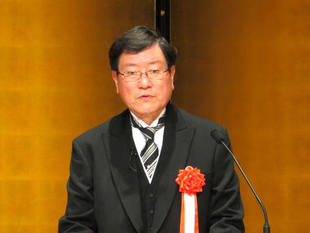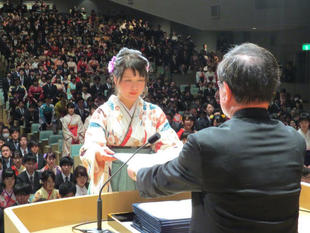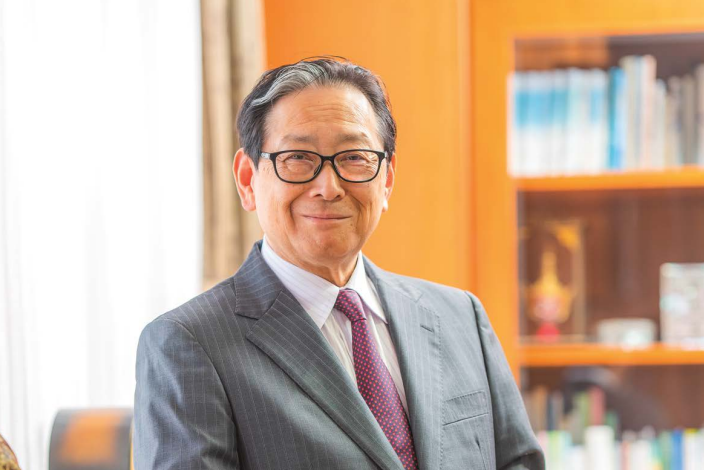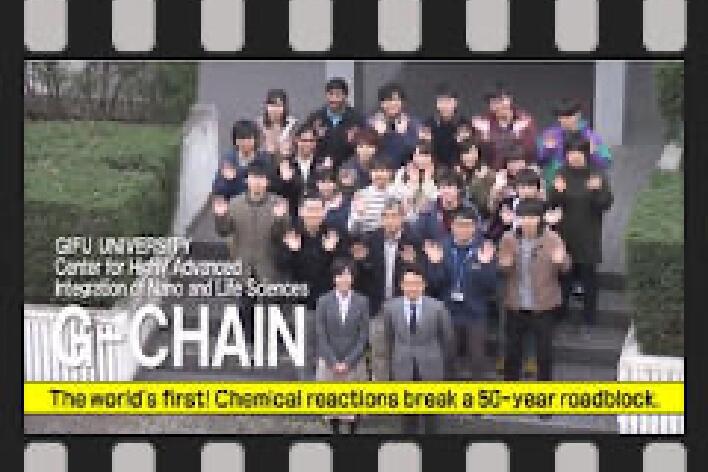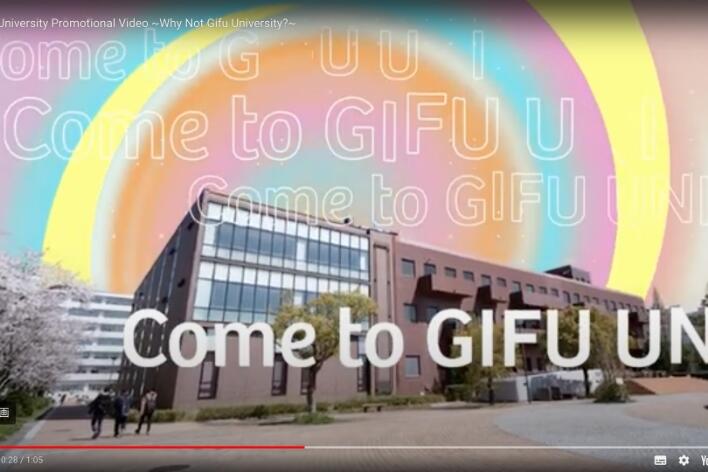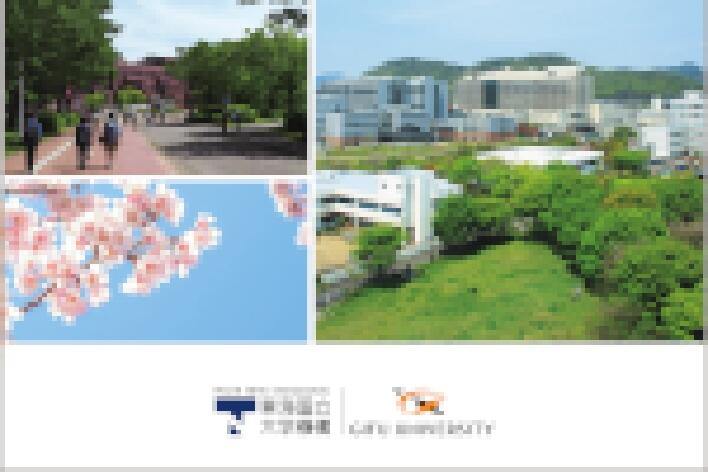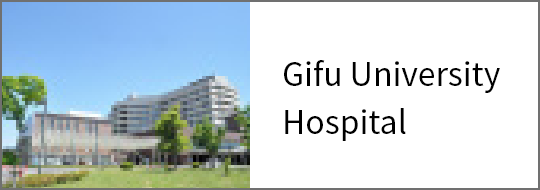President's Address at the 66th Commencement Ceremony & Graduate School Commencement Ceremony for 2017
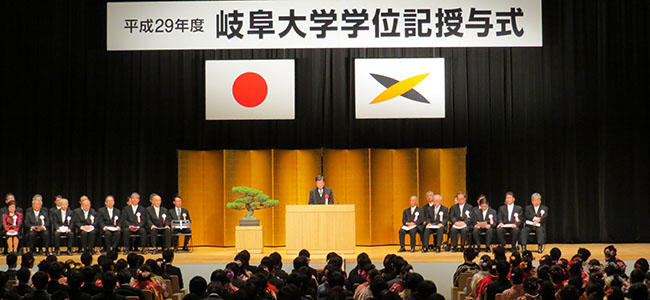
At this 66th Commencement Ceremony and Graduate School Commencement Ceremony for 2017 today, 1,349 undergraduate students and 523 graduate students leave Gifu University to blaze a new path to the future. Of these including the graduate students, 57 are international students and 47 are adult students. Let me start my address by offering sincere congratulations to the students who are graduating from Gifu University today, as well as to the faculty members who have guided and instructed the students towards this day. We are also pleased to welcome those who have supported the students during their life as students. Seeing such truly outstanding scene at the commencement ceremony gives me even more special happy feeling.
Gifu University was founded in 1949 and its history goes back to the "Gifu Prefectural Normal School," established in 1873. Thus, our University has a history of more than 140 years and has produced many outstanding alumni. They lead active roles in various fields including educational institutions, private corporations and governmental organizations, both in Japan and overseas. The faculties and graduate schools of Gifu University are highly rated not only in Japan, but also internationally due, of course, to the activities of our alumni. All of you, who have earned your diplomas today, will also play a part in these activities, but your true evaluation will depend on the roles you play in society in the future. Related to this concern, I would like to emphasize the following two points: one is to have both global and regional perspectives, the other is to have the courage to be pioneers in all sorts of areas, exploring them and making progress on your own.
Regarding global and regional perspectives, I feel increasingly that no matter where we are or no matter what development stage we reach, it is education that provides the base for supporting a country, particularly a country that has scarce resources such as Japan. Of course, the focus of education in each academic field changes with time and, furthermore, the weight of each field among whole academic area will continue to change in the future. Such move applies not just to education but to a wide range of industries. Thus, it is essential to identify a position on what requires collaboration and on what and how to share our work, not only from the viewpoint of one local area or one country, but also from an international viewpoint. I want all of you to consider what social contribution you can make on a global scale, without limiting yourselves to your own research themes or your own future plans.
Next, I would like to mention one of the most serious problems facing Japan, which is the decline in birth rate and increase in aging population, and their relationship with regional communities. This is the problem that developed countries will exactly confront sooner or later, and Japan is taking a leading place and serving as a model for their future. There are various approaches how to evaluate whether the results of the initiatives in this model are recognized as a success or regarded as a failure. In other words, there are diverse points of view on how to evaluate the happiness of individuals living in a certain region. For instance, some people in Japan prefer to live alongside their family in the region where they were born and brought up. To meet their needs, it is essential to provide these people with job opportunities, medical services and public welfare. Furthermore, enrichment of education is a prerequisite for encouraging long-standing life in a region. Once again, I would like to repeat the importance of looking at various situations from both international and regional viewpoints.
Secondly, as you proceed on the next stage of your long lives, do not be afraid of failure; decide what goals you wish to attain, and go forward. A great business leader in the Showa era said, "Even if you experience a failure, if you ultimately attain your goals, that will not have been a failure." It is, however, important to observe those around you more than sufficiently, and properly think factors through. Using research as an example, a British scientist taught me, "Thinking, thinking, thinking, and one experiment." I want you to have an intrepid fighting spirit, but mature, well-considered ideas that are backed up by it.
Those of you who are graduating today have studied basic and applied sciences at the various departments and graduate schools of Gifu University. However, the ways of thinking that you acquired here are not limited to the fields of your respective departments and programs. Rather, they can be applied broadly to the humanities, social sciences, and natural sciences as a whole and developed further. Together with the wisdom you have gained at Gifu University, I wish you to maintain lofty goals and a pioneering spirit, and begin to make contributions to society, the international community, and humankind at large. The message from Professor Toshihide Masukawa, the theoretical physicist who was awarded the 2008 Nobel Prize in Physics has been posted at Gifu University website. This message was specially given for the university students when I had the honor to talk with him last year: "Young people should have aspirations, dreams and hopes. Your constant, strenuous efforts to attain them will be a driving force for growth." Let me share his inspirational message to you all again today. Whether in the near or distant future, I hope that somewhere on this planet, I am able to witness that all of you will enjoy a measure of success toward your respective goals. Again, I extend my sincere congratulations to you.
March 25, 2018
Hisataka Moriwaki
President of Gifu University
